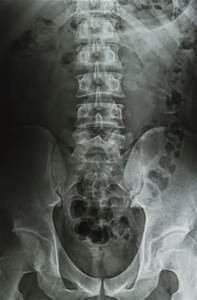


A spinal tumor is a mass of cells that forms inside or surrounding the spine. Spinal tumors, a very rare disease, can be cancerous or noncancerous. A spinal tumor is a serious condition and there is no known cause. The outlook of this disease varies, depending on your conditions. Seeking early diagnosis and treatment are always beneficial.
conditions. Seeking early diagnosis and treatment are always beneficial.
As there are different types of spinal tumors, their symptoms vary. The following are some of the general spinal tumor symptoms:

 pain is normally the earliest spinal tumor symptom, which may worsen with time or when lying down. back
pain is normally the earliest spinal tumor symptom, which may worsen with time or when lying down. back pain may or may not extend to different areas of the body, like leg, feet, hip or arms.
pain may or may not extend to different areas of the body, like leg, feet, hip or arms. body, including hot and cold, and pain.
body, including hot and cold, and pain.The spinal cord is key in your body’s ability to physically feel all sensations. When a tumor is pressing against your spinal cord, either loss of sensation or extreme pain can be felt in any area of the body, depending on the location of the tumor and which nerve within your spine it is pressing.
body’s ability to physically feel all sensations. When a tumor is pressing against your spinal cord, either loss of sensation or extreme pain can be felt in any area of the body, depending on the location of the tumor and which nerve within your spine it is pressing.
Spinal cancer tumors usually grow quite quickly, while benign tumors
usually will grow more slowly. Spinal tumor symptoms may either have a quick onset or will steadily get worse. Usually its pain or numbness will not cease with rest or different positioning . It is important to contact
. It is important to contact your health care
your health care worker or facility if you have any of the following potential spinal tumor symptoms.
worker or facility if you have any of the following potential spinal tumor symptoms.
 pain is continuously
pain is continuously getting worse and cannot be relieved by changing position
getting worse and cannot be relieved by changing position or resting.
or resting. back
back and yet you have persistent pain.
and yet you have persistent pain. back
back pain appears to worsen at night (most back
pain appears to worsen at night (most back pain does get better at night while resting).
pain does get better at night while resting). back.
back.Many spinal tumor symptoms also indicate different underlying physical health issues. If you experience some of the above mentioned symptoms, don't be alarmed but definitely make an appointment with your doctor because they may indicate other serious underlying diseases. Seek emergency health care
because they may indicate other serious underlying diseases. Seek emergency health care immediately if you are suffering from any of the following:
immediately if you are suffering from any of the following:
There are a few ways a doctor will generally use to diagnose spinal tumor:
will generally use to diagnose spinal tumor:
 your spine. This procedure allows the professionals to see very detailed images of your spine to find out what cause your spinal tumor symptoms.
your spine. This procedure allows the professionals to see very detailed images of your spine to find out what cause your spinal tumor symptoms. , or Computerized Tomography scan
, or Computerized Tomography scan , uses radiation to view any abnormal changes in your spine.
, uses radiation to view any abnormal changes in your spine. to test affected tissues. This will not only give, in complete accuracy, diagnosis but will also allow health care
to test affected tissues. This will not only give, in complete accuracy, diagnosis but will also allow health care workers to design a plan for treatment.
workers to design a plan for treatment.There are different types of spinal tumors:
Vertebral Column Tumors
 growing tumors and are extremely rare.
growing tumors and are extremely rare.Intradural-Extramedullary Tumors
Intramedullary tumors
They grow directly from individual nerves and spinal cord, which are generally found in the neck area. The majority of intramedullary tumors are noncancerous. There are two common types of intramedullary tumors: Astrocytomas and Ependymomas
Cancerous and noncancerous tumors both may cause spinal tumor symptoms. If you, or someone you care for, are experiencing potential spinal tumor symptoms, please see your health care worker. The aim of treatment is to reduce symptoms and limit nerve damages
worker. The aim of treatment is to reduce symptoms and limit nerve damages due to the pressure on the spinal cord. Once diagnosis has been completed, treatments should be given as soon
due to the pressure on the spinal cord. Once diagnosis has been completed, treatments should be given as soon as possible. The main treatment methods for spinal tumors include:
as possible. The main treatment methods for spinal tumors include: